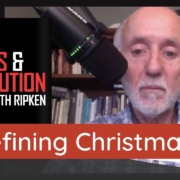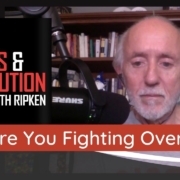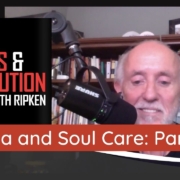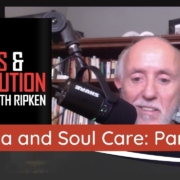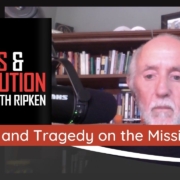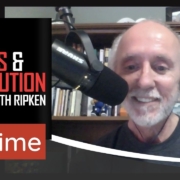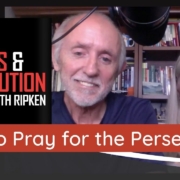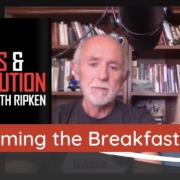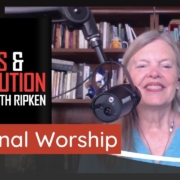The Israeli and Palestinian Conflict: A Call for a Biblical Response
While the Israeli and Palestinian conflict rages, Nik Ripken records a special episode to address what this conflict is, and what it is not. Nik pushes listeners to maintain, and express, a Christian worldview that forces us to read the Bible, seek God’s face, and step out in faith to fulfill the Great Commission in the hard places.
Be sure to subscribe to the Witness & Persecution Podcast on your favorite platform.
The ongoing conflict between Israel and Palestine has captured the attention of the world, and as believers, it is crucial for us to approach this issue with a biblical perspective. In this podcast, we will delve into a thought-provoking conversation between Nik Ripken and Anthony Ball, where they discuss the conflict and the need for a Christ-centered response. Drawing from their experiences and insights gained from believers in persecution, we will explore the importance of grace, truth, and love in navigating this complex situation.
Understanding the Current Situation
The conversation begins by acknowledging the severity of the conflict, with Nik Ripken highlighting the horrors committed by both sides. However, he emphasizes that as followers of Christ, our response should not mirror the secular world but should be rooted in the teachings of Jesus. It is essential to differentiate between the role of governments and militaries and the eternal perspective that believers should adopt.
A Biblical Worldview
The conversation prompts us to reflect on how we form our worldview. Nik encourages listeners to resist being swayed by political ideologies and instead seek a biblical perspective. He reminds us that our ultimate goal is to emulate Jesus and His teachings, which call for love, forgiveness, and reconciliation. This challenges us to examine our hearts and align our responses with the character of Christ.
The Power of Love and Reconciliation
Nik Ripken shares a powerful story of a believer who risked his life to protect Jewish children, despite being raised to hate and destroy them. This exemplifies the transformative power of love and the potential for reconciliation between Jews and Palestinians. It serves as a reminder that our mission as believers is to change lives, sow seeds of love, and trust in God’s timing for the harvest.
Avoiding a Western or Old Testament Mentality
The conversation cautions against adopting a Western or Old Testament mindset when approaching the conflict. While it is natural to feel anger or frustration, Nik reminds us that the Kingdom of God operates differently. Our response should not be driven by vengeance or violence but should reflect the teachings of Jesus. This challenges us to seek a Christ-centered perspective that transcends cultural and historical biases.
The Urgency of the Great Commission
The conversation highlights the staggering number of people worldwide who have little to no access to the Gospel. With 2.8 to 3 billion individuals lacking exposure to Scripture, songs, and missionaries, it is evident that the Great Commission remains unfinished. Nik Ripken emphasizes the importance of praying for the salvation of these souls and actively engaging in sharing the Gospel, rather than solely focusing on our own salvation.
“It’s time to fully accept and embrace the truth that God loves Jews, Arabs, Palestinians, Hindus, Chinese Muslims, Buddhists, Americans, Europeans equally.”
Praying for the Salvation of Others
The podcast addresses the misconception that the conflict in the Middle East is a sign of the impending end times. While acknowledging the significance of biblical prophecies, Nik reminds us that our prayers should not solely revolve around our own salvation or the second coming of Christ. Instead, we should pray for the salvation of those who have yet to hear the Gospel, recognizing the urgency of reaching the lost.
By embracing the teachings of Jesus and seeking His heart for all people, we can contribute to a more Christ-centered approach to the conflict and the world at large. Let us be agents of grace, truth, and love as we navigate these complex issues and strive to fulfill the Great Commission.

